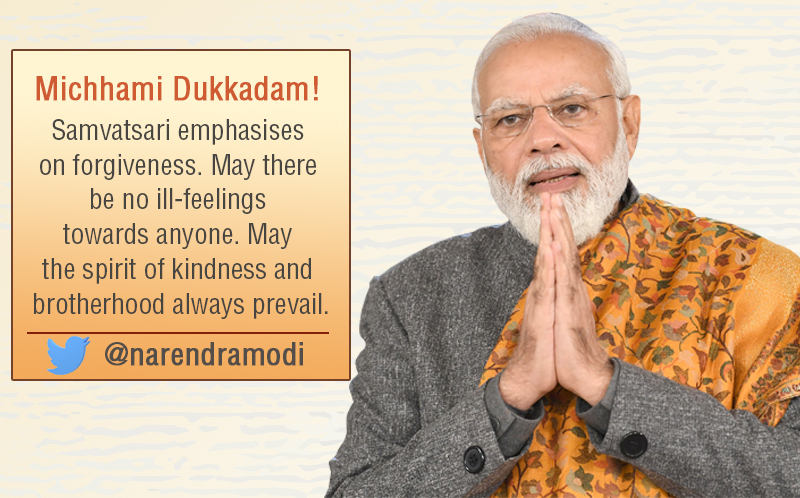In the rich tapestry of religious traditions, one often finds a tapestry woven with rituals, ceremonies, and festivals that serve as pillars of spiritual growth. For Jains, one such cornerstone event is Paryushana, an annual holy celebration that holds profound significance in their faith. In this blog, we will explore the intricate details and the profound meaning behind this sacred event.
1. The Essence of Paryushana
Paryushana, also known as Daslakshana, is an eight-day festival celebrated by Jains worldwide. It is a time of intense reflection, self-discipline, and spiritual introspection. The festival is marked by a deep commitment to non-violence (ahimsa), truth (satya), non-stealing (asteya), celibacy (brahmacharya), and non-possessiveness (aparigraha).
2. The Timing of Paryushana
Paryushana typically falls in the month of Bhadrapada (August-September) of the Jain calendar. This period is chosen strategically as it aligns with the monsoon season when Jain monks and nuns traditionally halt their travels and engage in intense spiritual practices.
3. Rituals and Observances
a. Swadhyaya (Self-Study): During Paryushana, Jains devote considerable time to self-study, reading scriptures, and listening to discourses. This helps in deepening their understanding of Jain philosophy and principles.
b. Pratikramana (Repentance): A pivotal practice during Paryushana, Pratikramana involves seeking forgiveness for any harm caused intentionally or unintentionally to living beings. It is a deeply purifying ritual aimed at spiritual renewal.
c. Upavasa (Fasting): Fasting is a central component of Paryushana. Devotees engage in various degrees of fasting, with some abstaining from solid food entirely. This practice fosters a sense of detachment and allows for heightened spiritual awareness.
4. The Significance of Forgiveness
One of the most profound aspects of Paryushana is the emphasis on forgiveness. Jains believe in seeking forgiveness from one another and offering it wholeheartedly. This act of pardoning and seeking pardon is considered instrumental in achieving spiritual liberation.
5. The Role of Ahimsa
Ahimsa, or non-violence, is the cornerstone of Jain philosophy. During Paryushana, Jains intensify their commitment to ahimsa by avoiding harm to any living being, even in thought. This practice extends to avoiding the consumption of root vegetables to prevent harm to the unseen organisms in the soil.
6. The Culmination: Samvatsari
The eighth day of Paryushana, known as Samvatsari, holds special significance. It is a day of atonement, reflection, and communal prayers. On this day, Jains request forgiveness from one another for any transgressions committed during the year.

A Pathway to Inner Transformation
Paryushana stands as a testament to the profound spiritual depth of Jainism. It offers a roadmap for inner transformation, emphasizing principles of non-violence, truth, and detachment. Through self-reflection and communal practices, Jains celebrate this annual event as a means to reinvigorate their commitment to the path of righteousness.
As we reflect on the intricate rituals and profound meaning behind Paryushana, we find inspiration in the universal message it carries – a message of compassion, forgiveness, and the pursuit of inner peace. May we all take a page from this sacred festival and incorporate its teachings into our own journeys towards spiritual growth and enlightenment.


